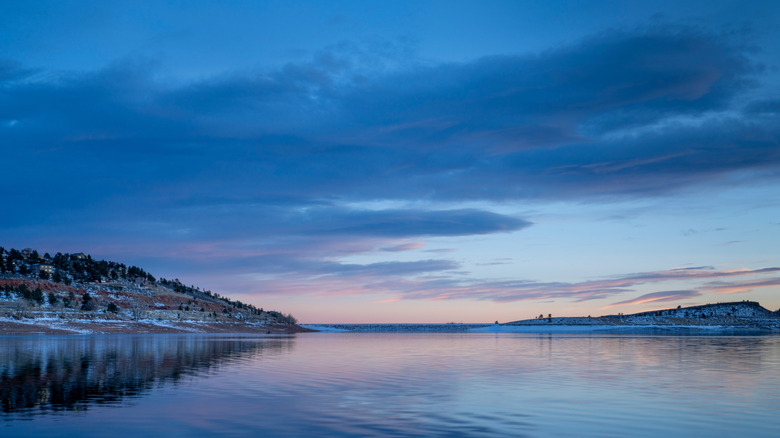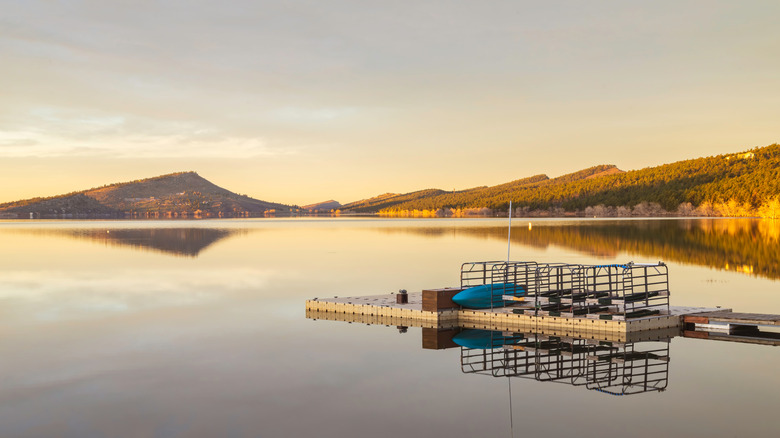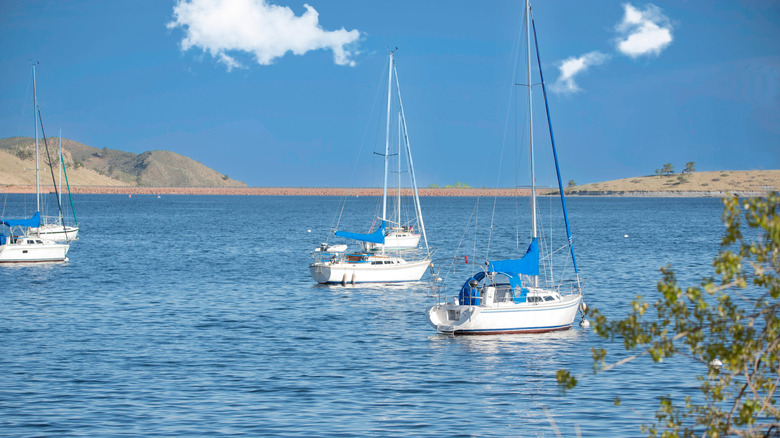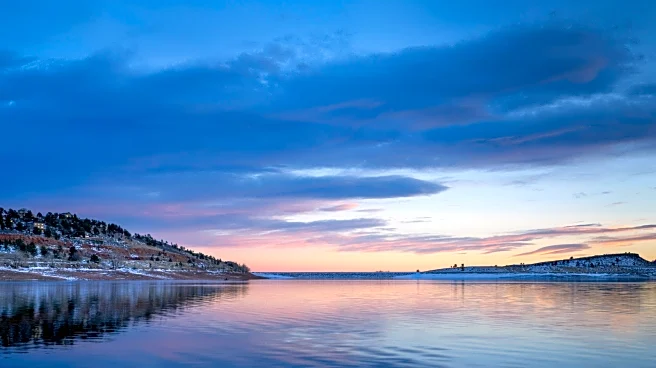
Colorado often gets typecast as a one-trick pony of a destination. Mountains, mountains, everywhere. You've got Aspen, that celeb-ridden alpine playground. Denver, with the ever-present Rockies and charming suburbs, including one that fuses urban amenities with outdoor adventure. Yet there's more than just high altitudes to be found. You can, and should, get wet while you're there. About 45 minutes outside of Boulder, tucked into the foothills of the Front Range, lies Carter Lake. One of the state's
most unique bodies of water, serving both for recreation and infrastructure, is packed with adventure. Outdoor lovers should wedge it into any trip to the Centennial State.
The 1,100-acre reservoir rests 5,760 feet above sea level, with all the adventure and picturesque views one would expect at that altitude. It also brings the unique experience of aquatic adventure in the thin Colorado atmosphere. Boating, fishing, and swimming all feel different in the dry, stingy air. The 1,000 acres of public land surrounding it multiply the possibilities, with hiking and camping topping the list.
While it may be an ideal getaway, Carter Lake is also a cog in a larger project. The reservoir is part of an intricate system that helps provide drinking water, hydropower, and irrigation for the surrounding area. While you may be enjoying your stay there, remember the reservoir plays a significant role in people's daily lives and deserves extra care.
Read more: The Best Vacation Destinations Where The US Dollar Goes Furthest
Fun On, In, Or Below Carter Lake's Surface

The lake's vast expanse of blue and surrounding public lands present a wide range of options. Yet why be dry when you're at a lake? Visitors can hit the water in various ways, from water skiing to swimming. Anglers will have arguably the most fun, though. Walleye, trout, and yellow perch all call the reservoir home. As the water's temperature climbs over 60 degrees Fahrenheit, largemouth bass become the trophy catch. Fishers can toss their line from a boat or the shore, with similar odds of success. You can also cast a line into the 180-foot deep waters from a craft.
While you may bring your own boat to Carter Lake, regulations surrounding nuisance species could make it a cumbersome task. Instead, rent a boat at the marina. Smaller fishing boats only cost $25 an hour, or $120 for a full day. Those looking for a little bit of on-the-water celebration can rent a pontoon for up to 10 passengers for $70 an hour. The real adventure, for some, will be below the surface.
Carter Lake has a registered scuba diving center at The Saddle, a dive location ideal for novices. Dropping beneath the surface reveals an aquatic world unseen from above, with bass and walleye swimming about. You may also spot a crawdad or two. More experienced divers can use the lake's deeper waters to practice their limited visibility skills, like navigation or search and recovery.
The Logistics Of Visiting Carter Lake

Denver International Airport is the closest major transit hub for those looking to fly in, leaving travelers about an hour away from the reservoir. Those hoping to see Carter Lake should probably make it part of a larger trip through Colorado. There's plenty to see nearby. Just 20 minutes away is Loveland, an artsy town and underrated gateway to the Rockies.
Those looking to overnight should stick to the reservoir itself. Carter Lake is surrounded by campgrounds, which range from rough-and-tumble tent-only sites to those with electric hookups. Spots can be available on a first-come, first-served basis or reserved. Make a reservation ahead of time if you're visiting during the summer, though. Sites tend to fill up quickly.
There is no wrong time of year to visit, as the reservoir is open year-round. The climate at Carter Lake covers the full spectrum of possibilities, from bone-chilling cold winters to toasty summers. Let your own seasonal preferences be your guide, and pack according to your plans. Be sure to get your paperwork done early. Visitors need permits to enter and camp at Carter Lake.
Ready to discover more hidden gems and expert travel tips? Subscribe to our free newsletter for access to the world's best-kept travel secrets.
Read the original article on Islands.

















